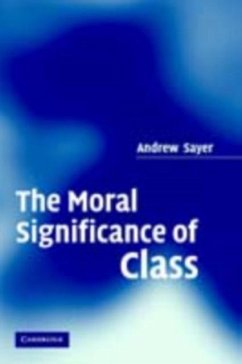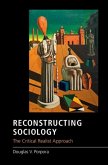The Moral Significance of Class, first published in 2005, analyses the moral aspects of people's experience of class inequalities. Class affects not only our material wealth but our access to things, relationships, and practices which we have reason to value, including the esteem or respect of others and hence our sense of self-worth. It shapes the kind of people we become and our chances of living a fulfilling life. Yet contemporary culture is increasingly 'in denial' about class, finding it embarrassing to acknowledge, even though it can often be blatantly obvious. By drawing upon concepts from moral philosophy and social theory and applying them to empirical studies of class, this fascinating and accessible study shows how people are valued in a context in which their life-chances and achievements are objectively affected by the lottery of birth class, and by forces which have little to do with their moral qualities or other merits.
Dieser Download kann aus rechtlichen Gründen nur mit Rechnungsadresse in A, B, BG, CY, CZ, D, DK, EW, E, FIN, F, GR, HR, H, IRL, I, LT, L, LR, M, NL, PL, P, R, S, SLO, SK ausgeliefert werden.









